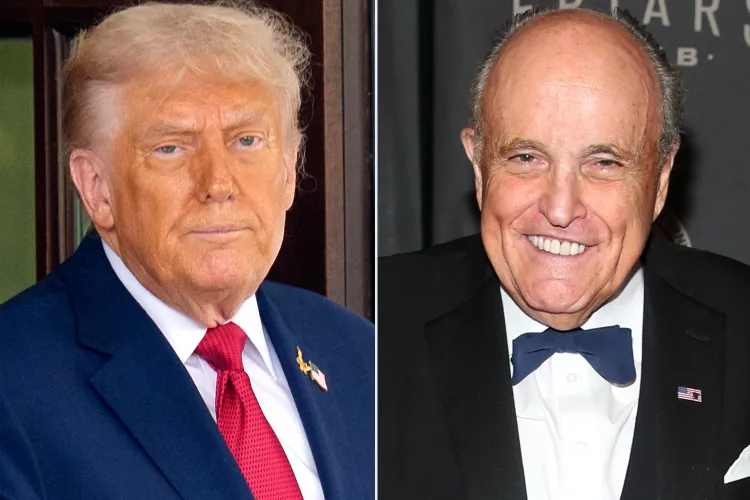NEWS
The Pardons: What Happened

On 7 November 2025, President Trump signed a proclamation granting a “full, complete and unconditional pardon” to over 70 U.S. citizens for any federal misconduct related to advising, organizing, supporting, or participating in alternate slates of presidential electors in connection with the 2020 election, as well as efforts to expose “voting fraud and vulnerabilities.”
Among the prominent names are Rudy Giuliani, former chief of staff Mark Meadows, attorneys Sidney Powell and John Eastman.
Trump’s proclamation explicitly notes that it does not apply to the President himself.
—
Why It’s Significant
Symbolic Message
By pardoning figures central to efforts to challenge and overturn the 2020 election outcome, the President is sending a message about how he views those actions—framing them as victims of political persecution rather than wrongdoing. The proclamation refers to a “grave national injustice” and promises “national reconciliation.”
Legal Implications
The pardons apply only to federal offenses; they do not shield individuals from state-level prosecutions such as in Georgia, Arizona or Michigan.
None of the pardoned individuals had been federally indicted for the specific conduct covered by the pardon, which raises questions about the practical effects versus symbolic weight.
The move adds a new dimension to the broader question of how executive clemency is used—or perceived—in U.S. governance and democracy.
—
Key Figures & Context
Rudy Giuliani
Giuliani served as Trump’s personal lawyer after the 2020 election and was central to efforts challenging the results. He was later disbarred in New York and Washington D.C. for his role in those efforts.
The “Fake Electors” Scheme
A key element underpinning many of the pardons is the so-called “fake electors” scheme: after the 2020 election, alternate slates of electors were assembled in key battleground states in the attempt to disrupt the official count of electoral votes for Joe Biden.
Legal & Investigative Backdrop
In recent years, state prosecutors in Arizona, Georgia and elsewhere have brought charges related to the false-electors effort, conspiracy and election interference. The federal criminal case against Trump was dropped after the 2024 election, so these pardons operate in a context where federal prosecutions of many implicated figures either did not move forward or remain uncertain.
—
Reactions & Criticisms
Supportive Views
The White House press secretary argues that the individuals pardoned were “persecuted” for challenging the 2020 election results and presenting an “election … cornerstone of democracy.” Supporters see the move as correcting perceived injustice and restoring loyalty to Trump’s vision of the election process.
Critical Voices
Legal experts and some lawmakers describe this as a dangerous precedent: that it may undermine accountability for attempts to subvert a democratic election. A commentary in the The Guardian even labels the pattern as “a classic authoritarian tactic.”
Concerns also focus on how the pardons may affect public trust in the justice system and the rule of law when politically connected actors are exempted from consequences.
—
Implications & What Comes Next
State prosecutions: Because these pardons do not cover state crimes, prosecutors in Georgia, Arizona and other states may still pursue individuals for election-interference allegations.
Precedent for future clemency: The expansive scope and timing raise questions about how the presidential pardon power might be used in future administrations—particularly involving politically aligned actors.
Public perception of elections: The decision may further polarize perceptions around the 2020 election and subsequent electoral integrity debates—potentially reinforcing or undermining faith in democratic processes.
Internal GOP dynamics: Within the Republican party, these pardons signal an emphasis on loyalty and reevaluation of the 2020 loss narrative, which could shape party strategy moving forward.
—
Conclusion
President Trump’s sweeping pardons for Giuliani and dozens of allies involved in the 2020 election-overturn efforts mark a watershed moment in U.S. political and legal history. Whether they will be seen as corrective justice, partisan reward, or a troubling step in the erosion of democratic norms depends largely on how the American public, courts and state prosecutors respond. For now, this move ensures the legacy of the 2020 election and its aftermath will continue to ripple through U.S. politics for years to come.
